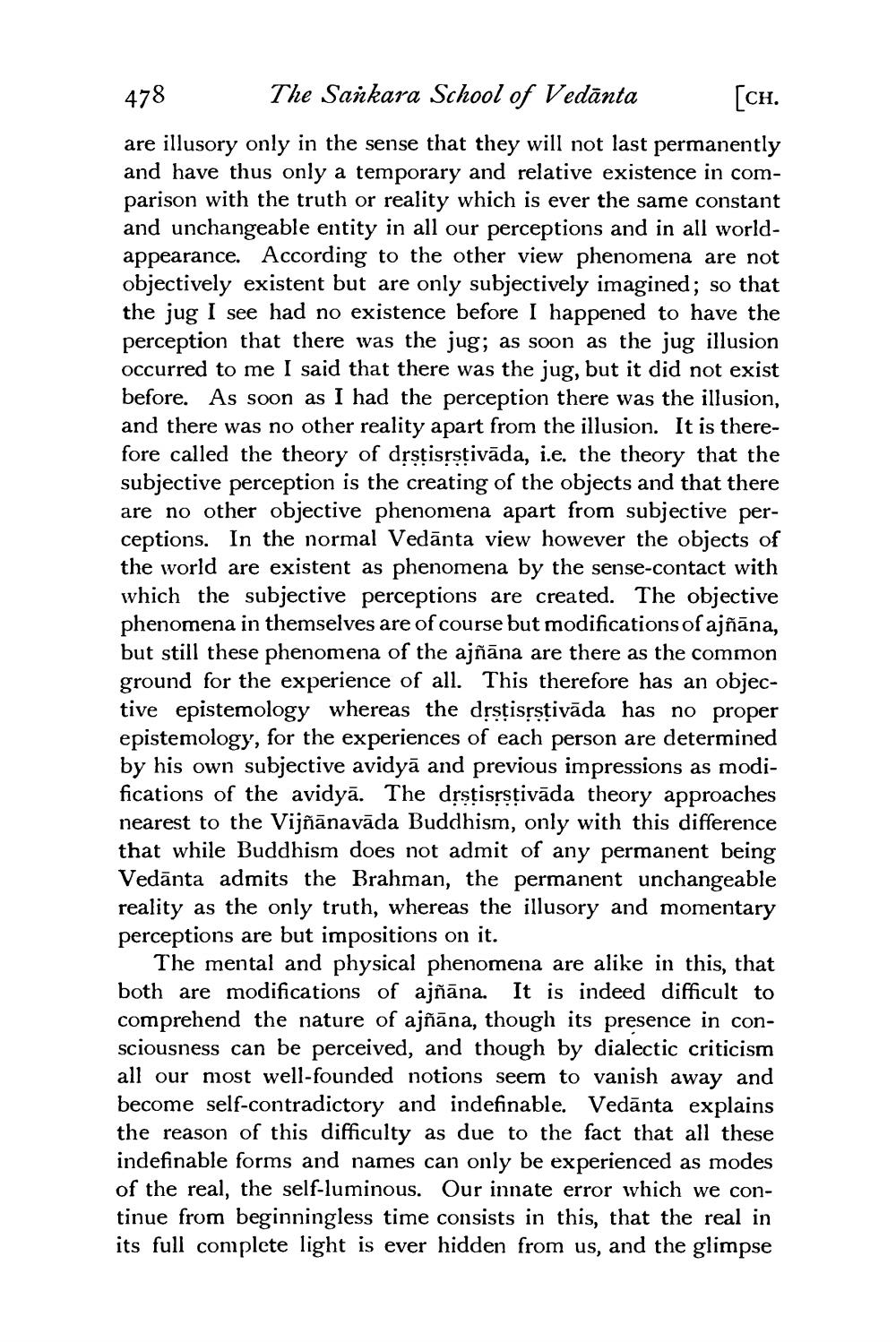________________
478
The Sankara School of Vedanta
[CH.
are illusory only in the sense that they will not last permanently and have thus only a temporary and relative existence in comparison with the truth or reality which is ever the same constant and unchangeable entity in all our perceptions and in all worldappearance. According to the other view phenomena are not objectively existent but are only subjectively imagined; so that the jug I see had no existence before I happened to have the perception that there was the jug; as soon as the jug illusion occurred to me I said that there was the jug, but it did not exist before. As soon as I had the perception there was the illusion, and there was no other reality apart from the illusion. It is therefore called the theory of drstisṛstivada, i.e. the theory that the subjective perception is the creating of the objects and that there are no other objective phenomena apart from subjective perceptions. In the normal Vedānta view however the objects of the world are existent as phenomena by the sense-contact with which the subjective perceptions are created. The objective phenomena in themselves are of course but modifications of ajñāna, but still these phenomena of the ajñāna are there as the common ground for the experience of all. This therefore has an objective epistemology whereas the dṛstisṛṣṭivada has no proper epistemology, for the experiences of each person are determined by his own subjective avidyā and previous impressions as modifications of the avidya. The drstisṛṣṭivāda theory approaches nearest to the Vijñānavāda Buddhism, only with this difference that while Buddhism does not admit of any permanent being Vedanta admits the Brahman, the permanent unchangeable reality as the only truth, whereas the illusory and momentary perceptions are but impositions on it.
The mental and physical phenomena are alike in this, that both are modifications of ajñāna. It is indeed difficult to comprehend the nature of ajñāna, though its presence in consciousness can be perceived, and though by dialectic criticism all our most well-founded notions seem to vanish away and become self-contradictory and indefinable. Vedānta explains the reason of this difficulty as due to the fact that all these indefinable forms and names can only be experienced as modes of the real, the self-luminous. Our innate error which we continue from beginningless time consists in this, that the real in its full complete light is ever hidden from us, and the glimpse




